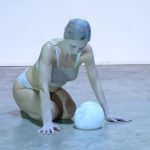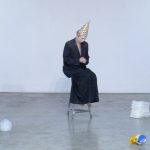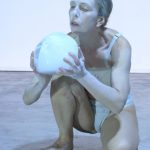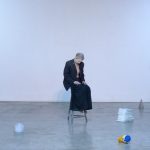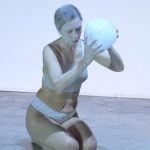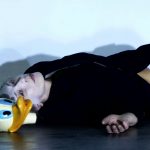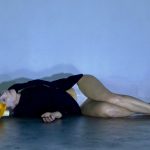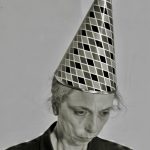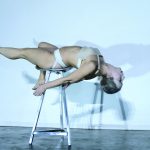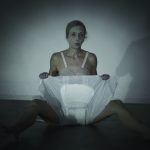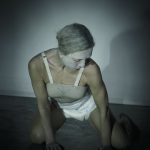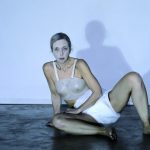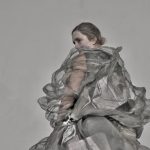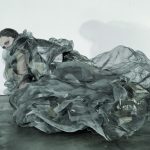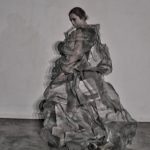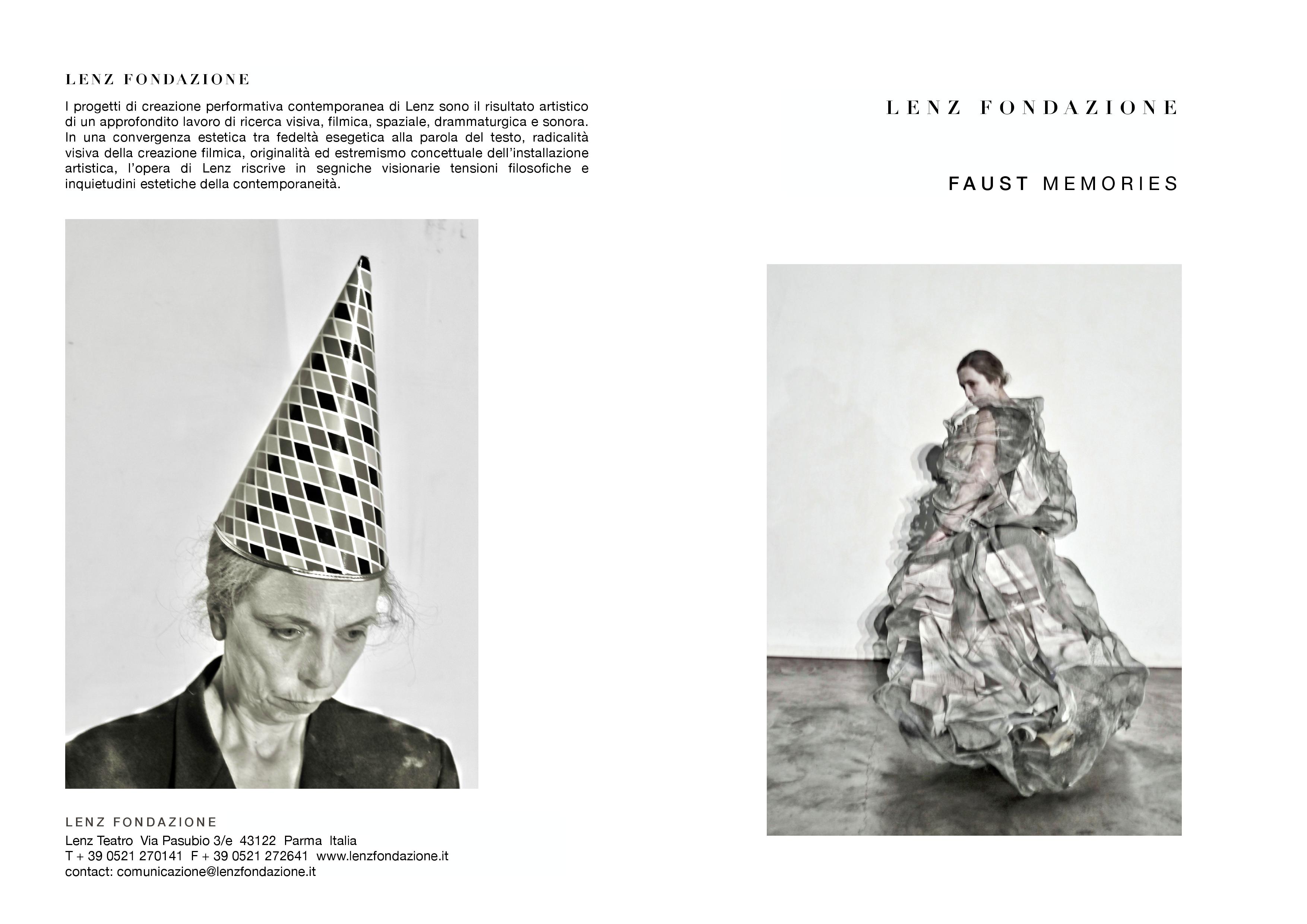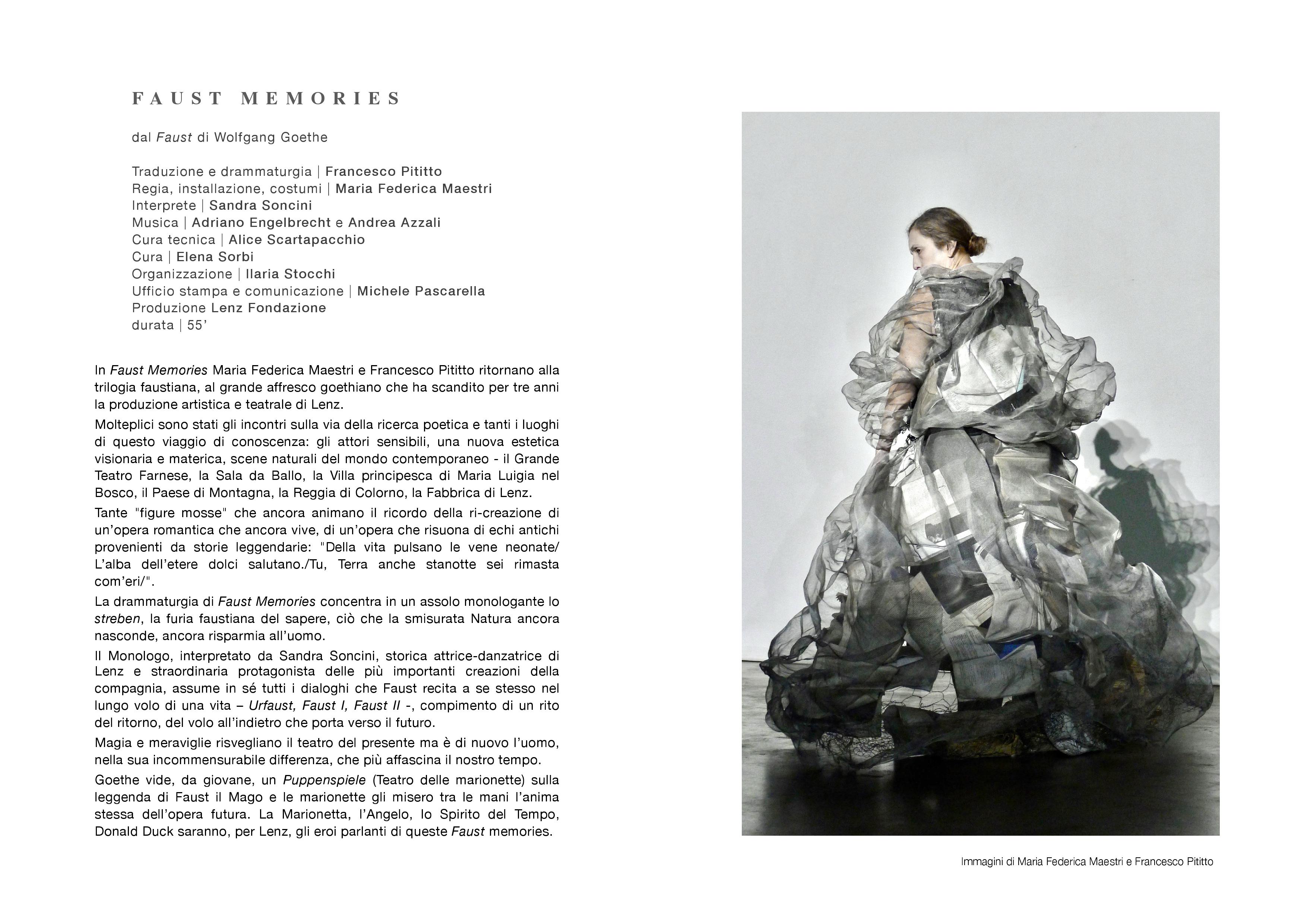
FAUST MEMORIES
In FAUST Memories Lenz returns to the Faustian trilogy, to the great Goethean fresco which he marked for three years (2000-2002) the artistic and theatrical production of the company. There were many meetings on the path of poetic research and many places on this journey of knowledge: sensitive actors, a new visionary and material aesthetic, natural scenes of the contemporary world – the Farnese Theatre, the ballroom, the Villa Maria Luigia in the Carrega woods, the mountain town, the Royal Palace of Colorno, the industrial space of Lenz Teatro. Many “figure mosse” which still animate the memory of the re-creation of a romantic work that still lives on, of a work that resonates with ancient echoes coming from legendary stories: “The newborn veins pulsate with life/The dawn of the ether sweetly greets./You, Earth, even tonight you remained as you were/”. The dramaturgy of FAUST Memories concentrates it in a monologuing solo strive, the Faustian fury of knowledge, what the boundless Nature still hides, still saves man. The Monologue, which takes into itself all the dialogues that Faust recites to himself in the long flight of a life – Urfaust, Faust I, Faust II -, performs the rite of return, of the backward flight that leads towards the future. Magic and wonders awaken the theater of the present but it is man again, in its immeasurable difference, that most fascinates our time. Goethe vide, as a young man, and Puppet shows on the legend of Faust the Magician and the puppets put the very soul of the future work in his hands. The Marionette, the Angel, the Spirit of the Time, Donald Duck they will be, by Lenz, the talking heroes of these FAUST Memories.
FROM URFAUST TO POSTFAUST
“Masks and puppets, the whole of Faust II is also a recovery of the Puppetry infantile; not just the sense of harmonious irony – the one that Croce, with its programmatic optimism superimposed on the temptation of decadent anguish, he wanted to see it spread at all costs and not only in the last scene - but in that of a continuous juxtaposition of human appearance and inhuman appearance, at all levels, in the féeries and phantasmagorias but also in the tragic and lyrical tensions. Everyone's identity changes, not just Faust and Mephistopheles, are subjected; even the Emperor, Elena, Homunculus, with euphoria, Margherita herself, places, the landscapes; even the scene of Philemon and Baucis is the synthetic tragedy of a long and fatal metamorphosis.
Now that happens, from time to time and from verse to verse, now this, now that character or bearer of word or image or metaphor detach themselves from the congeries of stylized deformation, from his parodic process, to provide elements of immediacy (of apparent immediacy), of vitality and freshness, like the presence of a naked body among mannequins, of a face without a mask among masks. In reality it is an organized optical illusion: because the false and the true continually exchange roles.”
Franco Fortini's introduction to Faust, translated in full by him, it reappeared to us retrospectively – already born, Therefore, the stage translation – as the clearest critical analysis of our staging. His Faust he accompanied the selection and rewriting of the parts used for our dramaturgy, verse after verse. The rewriting is evidently affected by the "imaginary translation" method that Fortini talks about, and from which he distances himself in the introduction to his work, but the metamorphosis necessary for the word to be transmuted into word-work has conditioned the ways and objectives of our text. Our translation belongs only to our scene, it wouldn't have made sense elsewhere.
In this way, We believe we have the “resonance effect or nostalgia of the original”., Anyway, kept intact in the words of the actors, as in their bodies and their contemporary transfigurations. Our Urfaust it already contains all the dramatic elements which will then be regenerated in Faust I and Faust II; differently from the original, these two parts will not repeat them but will re-present them once the change has already occurred, sometimes they will anticipate them or in other parts they will modify them.
So for tragic-classical Elena, appeared in double simulacrum with the tragic-romantic Helena in the Ur, returning to Faust II together with Paris meant returning to one's original place to experiment, practicing it, the power of its own beauty: “It's perhaps a memory?/This is madness that gets me?/I have been all of this? I am, Now?/I'll be like this tomorrow?/Tell me a word, only one that makes sense!”. However, his words will be those of his romantic double, the tragic Helen – “As soon as I was born I was already a miracle./Others are born as always, I do not. I was born in a white egg./My life is a dream, a magic, because I'm beautiful." – freed the other, she penetrated into her to be kidnapped again.
So for Margrete in Faust I there will not be a new meeting with the young Faust – “Faust: My pretty little lady, I can dare/my arm to escort and carry it? Margaret: I'm not a lady or pretty / and I can go home without an escort." – but the death of the child (anticipated by the fairy tale), the madness and prison of Ur will bring it, already changed by life, first to sing again to his already old Faust – “There was a King in Thule,/of gold a mug had/conceived of a lover/his Death above the Bed.” – and then to dance for the patrons of the obscene Auerbach cellar.
In the Faust II will reappear, Then, as “One of the penitents, first called Gretchen”:
“Around the choir of spirits / The new that comes can barely be felt / Existing, as soon as it is the new/Life that exists, and it is already equal/To the holy hosts. Vedilo,/as from the snares of earth,/from the ancient custom he strips himself of the new, from the ether comes the strength before youth!/Let me teach him:/the new day still burns his eyes.” So for File and Woof, already present in the Ur, the transfiguration will be for new actor bodies, new scenic landscapes in which the chiaroscuro of the original tragedy will take on, Who, the bright colors of a post-pop and Disney contemporary. In the imaginative and phantasmagorical chaos of Faust II, so in keeping with Goethe's fresco, will enter for intentional posthumous revenge and nostalgia for the strive youthful a fragment of Friedrich Hölderlin's Hyperion,:“What is man?/How is it possible that there is/A thing/that ferments, and boils like chaos!/Or that it becomes rotten like a rotten tree?/And it is never ripe./How can Nature bear/These sour grapes/Right among the sweet grapes? – Do not disturb man./From the cradle./Do not tear him from his closed bud,/do not tear him away from his childhood hut!/Don't worry about him, so that he doesn't feel your absence/And so alone he finds his difference!”
The “Dedicated”, not located at the beginning of the opera but at the beginning of Faust II, instead it will start from that Puppet fist that Fortini talks about. It's a starting over halfway through the journey, the awakening of Faust for the last backward flight: “You here again, moving figures/that one day appeared to my eye./I'll look for them, maybe now, to tell you “Halt”?/It will be my heart like the dreams of the past?”.
Then Ariel, which closed the Faust I, will reopen to the new landscape, to the new venture towards the Emperor's Palace, towards the Dark Gallery where Faust will meet the Mothers and the Key to rediscover the new beauty, the physicality of the soul, the feeling of the body. In the Hall of the Knights, the meeting with Helen and Paris will indicate the way to the new world towards which new openings can be glimpsed. The Sirens and the Dolphins, Erichto e le Lamie, off to the High Mountains and the Open Countryside where File and Woof, reached by air canoe by the Wanderer, they will suffer the ultimate violence.
Then Midnight: “Arriva, arriva, arrives / Stars disappear, the clouds flee away./Now the gray ones cast lots/It's coming now, she is our sister/She is alone, it's called Death!/Faust: I saw four come in, /only three have I seen go.” The end of Faust, blind to death, it will take place in the din of a Ducks' merry-go-round, distant and noisy, childish echoes of a dying man. A Penitent, already Gretchen as the poet indicates, will welcome him at the passage between earth and ether, followed by the putti who inhabit Heaven today.
Francesco Pititto
FAUST Memories
dal Faust di Wolfgang Goethe
rewrite | Francesco Pititto
regia, installation, costumes | Maria Federica Masters
interpreter | Sandra Soncini
musica | Andrew Azzali, Adrian Engelbrecht
technical care | Alice Scartapacchio
production | Lenz Foundation
first | Lenz Theatre, Parma 19 March 2004
first second version | Public Habitat, Lenz Theatre, Parma 15 March 2018
duration | 55 minutes
FAUST MEMORIES – trailer
FAUST MEMORIES – full video
FAUST MEMORIES > first setup > 2004
Fourteen years after the premiere, the revival of Faust Memories it's more than a shot, it is a sedimentation, it is a sort of archaeological re-emergence of a karst and aesthetic path that Lenz carries out with rigor and aesthetic coherence. more (…)
Nicola Arrigoni, Curtain, 27 March 2018
An unforgettable flow of quotes, of expressions, of styles while the text seems to get lost, so wonderfully absorbed by the powerful physicality of the performer.
Valeria Ottolenghi, Journal of Parma, 19 March 2018
Physicality becomes world, a body-stage, in which to find and grasp sudden emotional changes, philosophical tensions, fans of passions that release a wealth of multiple meanings. more (…)
Francesca Ferrari, Theaterpolis, 23 March 2018







